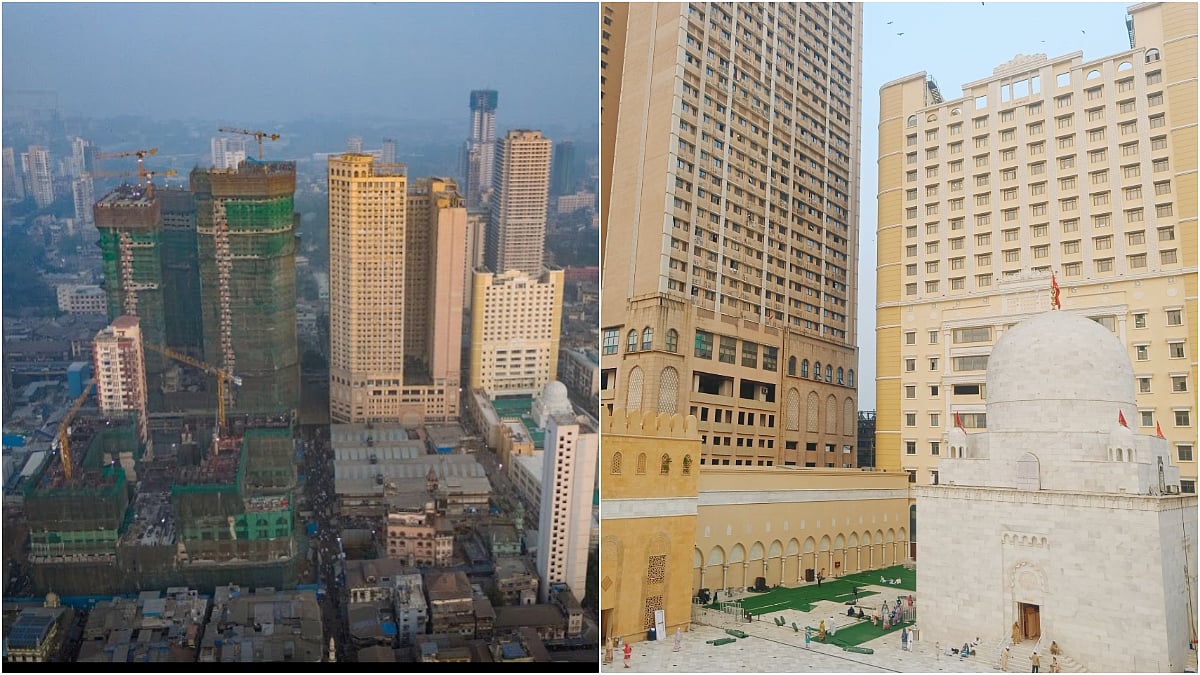Dawoodi Bohra community members meet PM Modi, raise concerns over Bhendi Bazaar redevelopment and Waqf law dispute | File Photo
Mumbai: Members of the Dawoodi Bohra community who met Prime Minister Narendra Modi in New Delhi on Thursday to express their support for the Waqf (Amendment) Act raised the issue of the Waqf dispute over the Bhendi Bazaar redevelopment project.
The urban renewal project, one of the largest in the country, is being executed by the Saifee Burhani Upliftment Trust, a wing of the Dawoodi Bohra administration.
While the project is in an advanced phase, there is a dispute over the transfer of the Musafirkhana building and its attached prayer space to SBUT. Some members of the local Muslim community have objected to its demolition, contending that the place is a mosque and a religious endowment under Waqf laws. They have said that the premises cannot be demolished for non-religious use. SBUT says it is not a mosque but a prayer hall and not a Waqf property.
A delegation member told Modi that they had purchased the property in 2015. “We are the property’s owners. We bought it at great expense. In 2019, two people from Nashik and Ahmedabad came and claimed that it is Waqf property. A third party has no right to the property. We needed a change in the law. Therefore, we asked for exclusion from the law. We did want to be under the jurisdiction of this law,” said the delegate.
A member of the group told the PM that the Dawoodi Bohras have been asking for exemption from the Waqf law since the days of the colonial Privy Council. “The Privy Council enacted the law for a minority. You (the PM) made a law for just the minority, but for a minority among minorities,” the member of the group said.
The delegation expressed their gratitude to the Prime Minister for the Waqf (Amendment) Act 2025, which accommodated some of their key demands. A member of the group said that by passing the Waqf (Amendment) Act, 2025, Modi fulfilled a 100+ year demand since the community’s hereditary leader, the 51st Dai al-Mutlaq, or Syedna, sought exemption from the law. While the law does not explicitly grant the community exemption from the new law, a provision in the legislation allows Bohras and other distinct sects among Muslims to create their own administrative boards.
Recently, the Maharashtra State Waqf Tribunal Aurangabad stayed an order of the Maharashtra State Board of Waqf that had declared a disputed prayer hall/mosque in the Haji Ismail Haji Habib Musafirkhana Trust, Pakmodia Street, as a non-Waqf property. An appeal has been filed against the order.
The Dawoodi Bohras are a Shia Muslim community living predominantly in Gujarat, Maharashtra, Rajasthan, and Madhya Pradesh. They are led by a spiritual leader called the Syedna, who represents an Imam in seclusion. The community has its headquarters in Mumbai.
The Waqf Amendment Act was passed by Parliament on April 8. The Supreme Court is currently hearing a batch of pleas challenging the constitutionality of the law. The government says that the law brings transparency and efficiency in the management of Waqf properties. Muslim religious endowments are administered by the central and state Waqf Boards. The apex court has expressed reservations against some aspects of the law, including the inclusion of Hindu members in the Waqf Boards.
SBUT started the Bhendi Bazaar redevelopment project in 2009. The project plans to replace the low-rise cluster of early twentieth-century buildings with high-rise apartments and commercial spaces.
The project involves the rehabilitation of 20,000 people from over 3200 families and 1250 businesses in a redeveloped precinct with modern infrastructure, recreational space, and markets.
